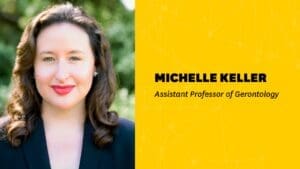US News & World Report and UPI ran a Health Day article about research by Caleb Finch of USC Leonard Davis showing there was very little mention of dementia in ancient Rome and Greece, based on a text analysis. More coverage appeared in Lab Roots and Daily Mail.
IFL Science, Earth.com and The Times (Greece) featured a study by Caleb Finch, a University Professor at the USC Leonard Davis School of Gerontology, in which he analyzed medical texts from ancient Greece and Roman and found only rare mentions of severe memory loss, suggesting that today’s widespread dementia stems from modern environments and lifestyles. “The ancient Greeks had very, very few – but we found them – mentions of something that would be like mild cognitive impairment,” Finch said. “When we got to the Romans, and we uncovered at least four statements that suggest rare cases of advanced dementia – we can’t tell if it’s Alzheimer’s. So, there was a progression going from the ancient Greeks to the Romans.”
Inside Edition interviewed Edward Schneider regarding Donald Trump’s cognitive health following a verbal gaffe. “There are changes in your brain; you’re not as sharp as you would be at 35, but the trade-off is you have a lot more experience.”
Medical News Today quoted USC Leonard Davis adjunct professor Linda Ellerby on research that indicates intermittent fasting could slow brain aging. Ellerby is also affiliated with the Buck Institute for Research on Aging. “Finding factors that make the brain resilient or prevent the aging process will be important to slowing aging. … It is possible that simple changes in our diet can increase the levels of OXR1 in the brain and this would be protective.”
HuffPost interviewed Jennifer Ailshire of USC Leonard Davis and USC Price for tips on improving longevity. Ailshire gave advice such as being physically active, socially engaged and doing what you can to reduce controllable stress. The story also ran on Yahoo News sites
Wall Street Journal interviewed Eileen Crimmins of USC Leonard Davis for an in-depth story about Americans’ growing health issues with age. Crimmins said: “We are living longer and better, even if the length of life with diseases increased.”
U.S. News & World Report covered research from Pinchas Cohen that tied a rare mutation to a greatly reduced risk of developing Parkinson’s disease.
Newsweek covered research from Pinchas Cohen that tied a rare mutation to a greatly reduced risk of developing Parkinson’s disease.
The American Psychological Association mentioned Mara Mather’s research on breathing exercises and Alzheimer’s risk in a trend report. “Slow-paced breathing may be able to slow the early stages of Alzheimer’s disease in adults who are still cognitively healthy,” said Mather. “If so, this simple relaxing technique could be a low-cost and low-risk way to reduce risk of the disease.”
Medical News Today featured an article on the fasting-mimicking diet developed by Valter Longo. “Thus, a 5-day diet that comes in a box like medicine could allow people that don’t want to change [their] diet [to] have the benefits of a healthier diet potentially if done less than once a month,” he said. “We believe that 15–20 days a year could already provide important benefits.”






